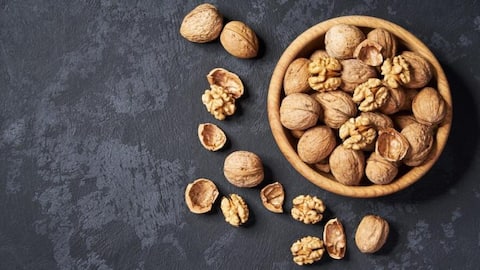Signs you are eating too many walnuts and should stop
What's the story
There's no denying the fact that walnuts are healthy and delicious. Yet, enjoying them in moderation is vital. Overindulging in walnuts, despite their positive attributes, can lead to potential health issues. Understanding the signs of excessive walnut consumption is essential for maintaining a healthy balance in your diet. Here are some signs you are having more walnuts than your body needs.
Sign 1
Stomach issues
Excessive consumption of walnuts can cause many stomach-related issues, of which stomach cramps, diarrhea, and bloating are the most common conditions that have come to light. As walnuts are rich in phytic acid, eating too many in a day can hinder the absorption of essential micronutrients like zinc, iron, and calcium. This can cause a shortage of these nutrients and invite many additional ailments.
Sign 2
Weight gain
When consumed in moderation, walnuts can contribute to your overall health. However, exceeding the recommended daily intake might result in unwanted weight gain. These crunchy nuts are pretty calorie-dense, and excessive consumption can lead to the accumulation of excess fat in your system. This surplus fat accumulation can contribute to obesity and its associated health risks.
Sign 3
Sudden allergies
Another common sign that you may experience is developing sudden allergies. This can manifest as minor, short-term issues like skin rashes, itching, and coughing, to more severe ones like swelling of body parts, mouth ulcers, or worse, breathlessness. In case you're experiencing any of these above-mentioned symptoms, it is best to stop consuming walnuts (or any nut for a while) and seek a doctor.
Sign 4
Kidney stone formations
Although rare, overconsumption of walnuts can potentially lead to the formation of kidney stones. Hence, it is crucial to monitor your daily intake carefully. Experts link this side effect to the high oxalate content found in these otherwise healthy snacks. The recommended daily intake of walnuts is typically between 28 to 56 grams to maximize their health benefits.
